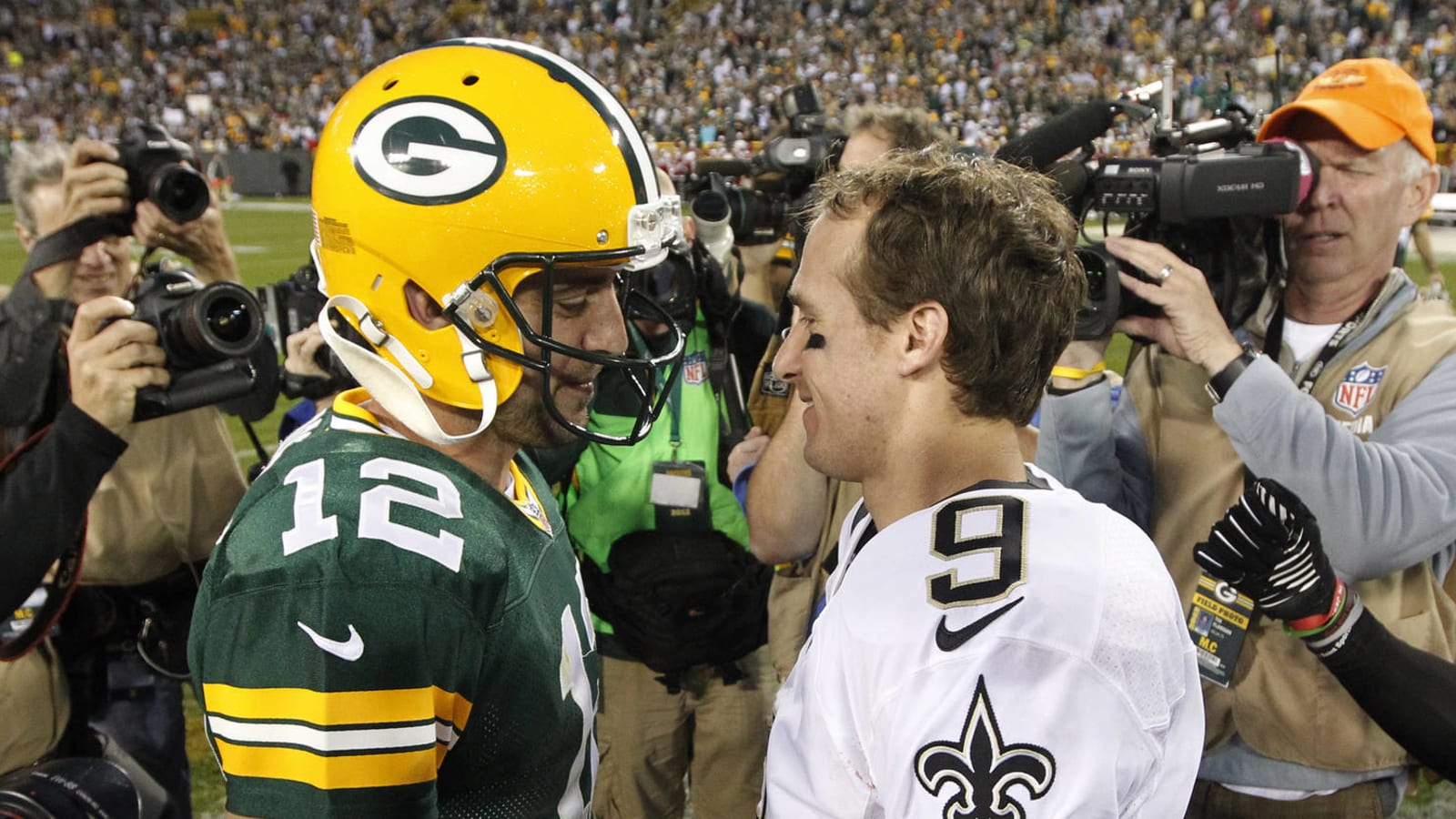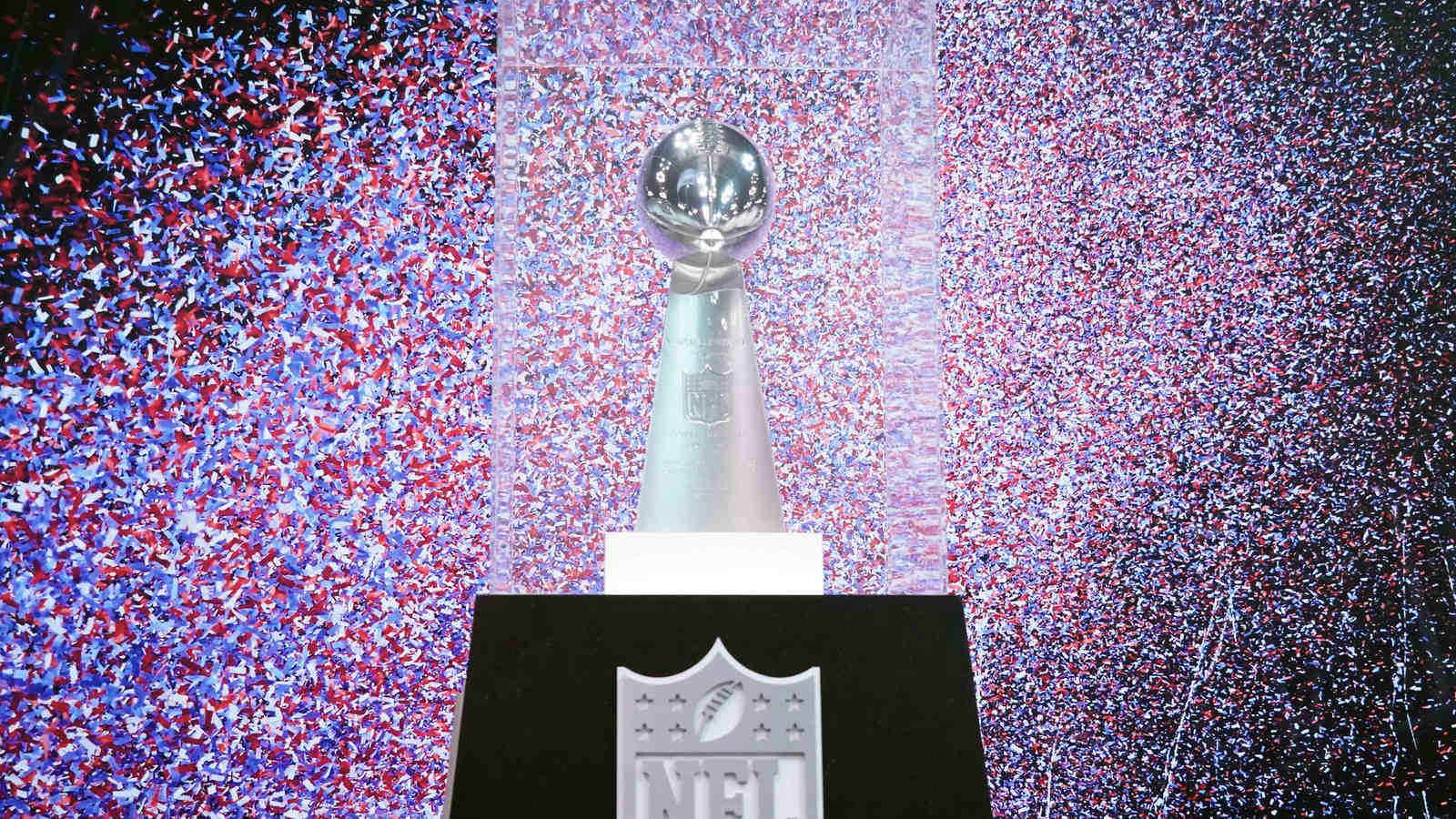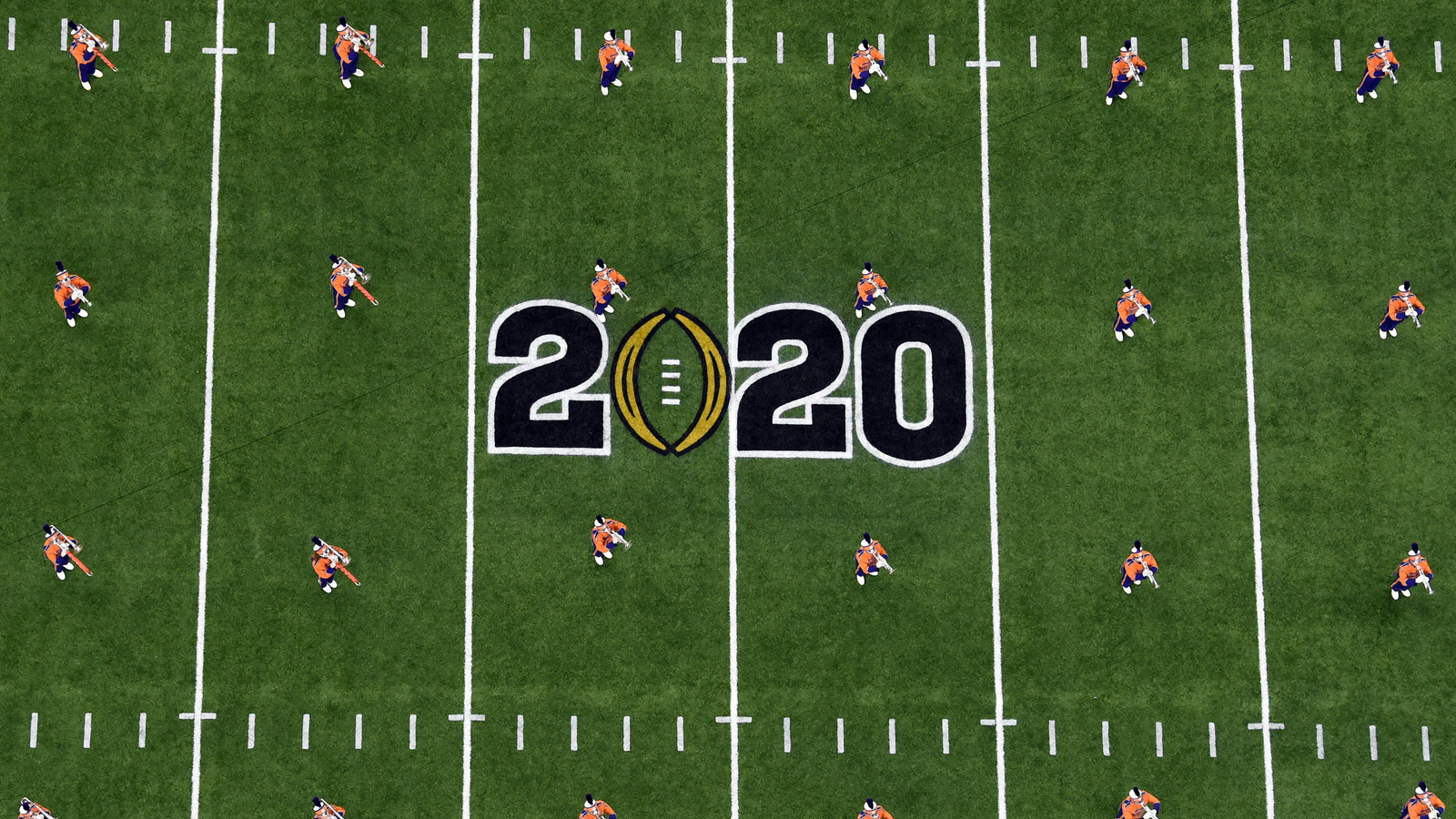
NFL schedule aims for normalcy amid a year of uncertainty
The NFL released its schedule for its 101st season Thursday night. This one will feature flexibility, with sports still uncertain due to the COVID-19 pandemic.
Here are 10 observations and potential fallout scenarios regarding the NFL schedule and the possible issues the league could be navigating as the season nears.
League not lacking for QB duels

If the NFL can play its full schedule, it presents a slew of high-profile quarterback matchups. Patrick Mahomes will face off with Deshaun Watson (Week 1), Lamar Jackson (Week 3), Tom Brady (Week 12) and Drew Brees (Week 15). Not only will there be two Brady-Brees matchups (Week 1, Week 9), Brady will duel with Aaron Rodgers for just the third time (Week 6). What could be the final Brees-Rodgers showdown is scheduled to commence in Week 3 in New Orleans as well.
The class of 2004 may have its final tilt in Week 16, when Ben Roethlisberger’s Steelers host Philip Rivers’ Colts. Jackson-Roethlisberger on Thanksgiving looms as well, as does Roethlisberger-Watson in Week 3. Rodgers-Rivers occurred last season in Los Angeles — a Chargers upset. It will transpire again when the Colts host the Packers in Week 11. December could also bring a preview of a future rivalry.
Should the Dolphins begin the Tua Tagovailoa era this season, Tagovailoa-Joe Burrow III (counting their Alabama-LSU tussles) will take place in Week 14 when the Bengals are booked to trek to Miami. With Brady leaving the AFC East, Russell Wilson is light on QB showdowns. He is slated get Matt Ryan in Week 1 and Dak Prescott in Week 3, however.
Certain games would suffer without fans

The Saints managed to draw the Packers, 49ers, Chiefs and Vikings at home this season. After three straight brutal season endings, New Orleans not being able to assemble its elite home-field advantage would be a bad break. The Chiefs play most of their impact games away from Arrowhead Stadium, but their Week 1 Thursday-night game against the Texans — when their first Super Bowl banner in 50 years will be raised — qualifies as a marquee date in Kansas City sports history. Should the NFL rearrange its schedule, the Raiders not opening their Las Vegas venue on a Monday night against the Saints would be a downer as well.
Browns-Giants games normally carry little weight, but Odell Beckham Jr. facing the team that traded him in his former home stadium stands to be a must-observe scene come December. The Giants are among the teams that will face the most difficulty hosting games; Beckham’s return could well be minimized or relocated. The Steelers’ Oct. 18 home game against the Browns doubles as Myles Garrett’s first trip to Pittsburgh since he was suspended for striking Mason Rudolph with a helmet.
Buccaneers set for immense profile boost

The “Sunday Night Football” crew has not ventured to Tampa since 2008, when Jeff Garcia threw for 310 yards in a 20-7 Bucs win over the Seneca Wallace-quarterbacked Seahawks. This year’s Bucs are experiencing the biggest relevancy surge in modern NFL history, adding arguably the greatest quarterback ever and probably the most dominant tight end in league annals. Tampa Bay has five prime-time games — up from one last season. Over the past 15 seasons, the Bucs’ 17 prime-time contests rank as the NFL’s fewest — just behind the Bills’ 18 and Jaguars’ 19.
Tom Brady and Rob Gronkowski surely caused the networks to duel for Bucs dates, which is fascinating considering Tampa Bay’s 12-year playoff drought is the NFC’s longest. The Bucs will end their Raymond James Stadium “Sunday Night Football” hiatus in Week 9 against the Saints and match up with the Bears, Raiders, Giants and Rams in night slots. But the Bucs' games that are not in prime time illustrate their 2020 value.
Fox and CBS clearly won battles, respectively, to slot Brady-Aaron Rodgers III and Brady-Patrick Mahomes IV in the afternoon windows. With networks permitted to protect certain games, expect both of those contests to stay in the afternoon.
Ravens may have edge in AFC aristocracy duel

The AFC features a host of intriguing second-tier contenders, but a clear dividing line exists between the Chiefs-Ravens tier and the rest of the conference. On that end, Baltimore may have an early advantage.
Not only are the Ravens set to host the Chiefs on a September Monday night, their final three games come against the Jaguars, Giants and Bengals. While the Ravens match up with the weaker NFC East and have two Bengals contests, the Chiefs will lock up with the NFC South and play both the Saints and Buccaneers outside of Missouri. They also have a road tilt in Buffalo. The Ravens’ toughest road assignments are against the DeAndre Hopkins-less Texans and Tom Brady-less Patriots.
Although home-field advantage is not certain to matter in this season’s playoffs, Baltimore may have a leg up to repeat as the AFC’s No. 1 seed.
Navigating an uneven landscape

As the NBA attempts to move through a process that involves opening facilities in certain states where stay-at-home orders have been lifted, the NFL will need to make decisions soon after. The league released a cloudy statement regarding the reopening of teams' facilities Wednesday, but certain states have dealt with the coronavirus more than others and thus will be more cautious to reopen – even if the virus begins to dissipate. California Governor Gavin Newsom remains bearish on the prospect of games being played with fans this year in his state. If certain teams can have home-field advantages and others cannot, that would create a competitive issue the NFL must address.
The NFL has scheduled two home games and two road games for each team to start the season, doing so in case those games need to be tabled or scrapped. But would the league allow the 49ers, Rams and Chargers — and possibly other teams — to play in fan-less venues while other teams host games with spectators? That would seem incongruent with the way the league has operated thus far, keeping all facilities closed until every state’s stay-at-home order is lifted. Would the NFL temporarily relocate the three California teams? If it meant a better chance of having fans in stadiums, it almost certainly would.
Travel matters

Travel itself could pose issues for teams this season, and some trips may be significantly different. The 49ers will likely arrange to stay in New Jersey or New York in September, when they have back-to-back games against the Jets and Giants in Weeks 2 and 3. In Weeks 13 and 14, the Patriots are slated for two Los Angeles games — against the Chargers and Rams. Both the 49ers’ and Pats’ sojourns would need to be adjusted if the New York City- and California-based teams were forced to play their seasons elsewhere.
Potential cancellation procedure will affect teams disproportionately

One of the NFL’s contingency plans may feature a 14-game season with Weeks 1-2 being turned into each team’s final two games and Weeks 3-4, then, being eliminated from the schedule. The league appears to have prepared for this by scheduling no division games in those weeks. Some teams’ outlooks will change should the 14-game scenario occur.
The most difficult game on the Chiefs’ schedule may come in Week 3, when they are slated to travel to Baltimore. The Packers would be spared perhaps their toughest assignment — a Week 3 road date in the Superdome. In Week 4, New England would avoid its first game in Kansas City in six years — while the Eagles would skip a trip to San Francisco. The Bucs would avoid a journey to Denver, where Tom Brady has struggled more than in most locales. Fans should look at Weeks 3-4 closely. They reveal interesting symmetry and a bigger-picture plot.
What happens if the Super Bowl is moved back?

The NFL is prepared to delay its season by perhaps months in an effort to have fans in stadiums. Super Bowl LV could be pushed into March, but it being moved beyond mid-March would mandate a negotiation with the NFL Players Association since a late-March Super Bowl would conflict with the 2021 league year. While the NFL needs fans in stadiums and to play all its games to keep in place a reality where its salary-cap spikes in 2021, the NFLPA may have some issues.
If the regular season runs through January and possibly into February and the Super Bowl occurs in March, that will mean free agency would ensue much closer to the season. More players would hit the market with medical questions, thus driving down their value. The bigger question would then be if the NFL and NFLPA could sign off on preseason games occurring less than four months after the Super Bowl. The 1982 players’ strike and the Sept. 11, 2001 terrorist attacks only caused those Super Bowls to be delayed one week. A postponement of several weeks could well force the NFL to push back its 2021 season.
Could college football’s uncertainty help NFL?

College football faces more significant hurdles to holding its season than the NFL does. Division I-FBS plays games in more states, has far more teams and will depend on universities green-lighting students returning to classes. This has created mass uncertainty. Delays, postponements and the prospect of some teams playing while others do not entered the conversation. The NFL has engaged in discussions with its TV networks about holding games on Saturdays throughout the year. While such dates cannot be built into the schedule now — with the NCAA still hoping to play its games on time — an interesting opportunity exists for the NFL in 2020.
As is the case annually, the NFL schedule unveiled a weekly imbalance. In 10 of the 14 weeks where all time slots are known, three or fewer games are scheduled for the late-afternoon window. The NFL will continue to flood its marketplace in the 1 p.m. ET slot, devaluing those games to a degree because of the time overlap. However, in the unfortunate event the college football season must be delayed or canceled, the NFL playing multiple games on Saturdays would both create new national time slots for football-starved viewers and present the league with a look at a schedule that does not throw nine or 10 games at fans weekly in the early-Sunday time slot.
This season potentially providing fans with more windows to watch games would obviously trigger a ratings boost. The NFL on Saturday would be a one-off, but this season could open the door to the league considering staggering its start times for the future — the way it does with its late-afternoon window — in order for fans to be able to follow more games.
Would college season cause NFL to change schedule?

On the same lines as a possible NFL delay affecting the 2021 season, would a college postponement force the NFL’s hand? Murmurs of the NCAA considering a season that unfolds in early 2021 rather than the fall would inject more chaos into the sport. The NFL is not expected to change its supplemental draft formula to accommodate prospects leery of college football uncertainty, but would it have to adjust the 2021 schedule in the event a college football season carried over into the spring?
The NFL asks rookies to expand their seasons to 16 games (and soon 17). This often causes issues for first-year players. But asking them to go from playing a college season to trudging through an NFL offseason in a matter of weeks sounds absurd.
Select players played an 18-game USFL season in 1985 and then suited up for NFL football that fall — due to the spring league folding — in what amounted to a 30-plus-game year for stars like defensive end Reggie White and wide receiver Anthony Carter. But the NCAA could force the NFL’s hand here in the name of a good product in 2021. If the NFL schedule gets bumped back and college football is delayed, the league would seemingly have no choice but to adjust its calendar.
More must-reads:
- NFL has schedule contingencies in place in case of coronavirus issues
- Kyle Shanahan shares what he looks at with NFL schedule release
- The 'NFL head coaches' quiz
Breaking News
Trending News
Customize Your Newsletter
 +
+
Get the latest news and rumors, customized to your favorite sports and teams. Emailed daily. Always free!








